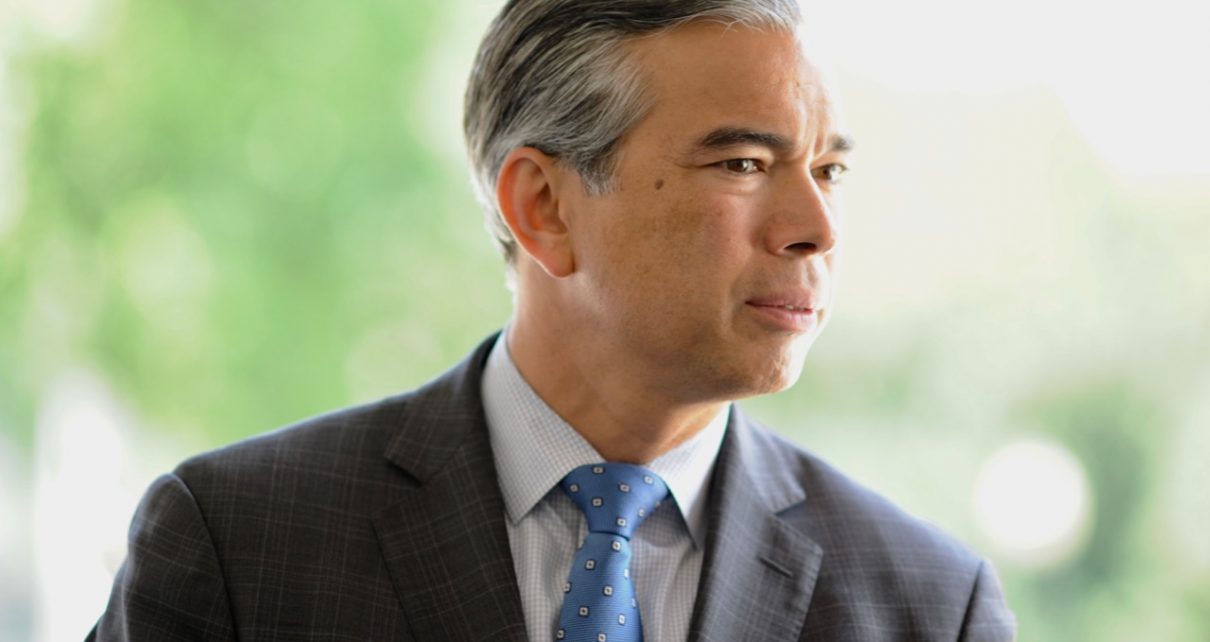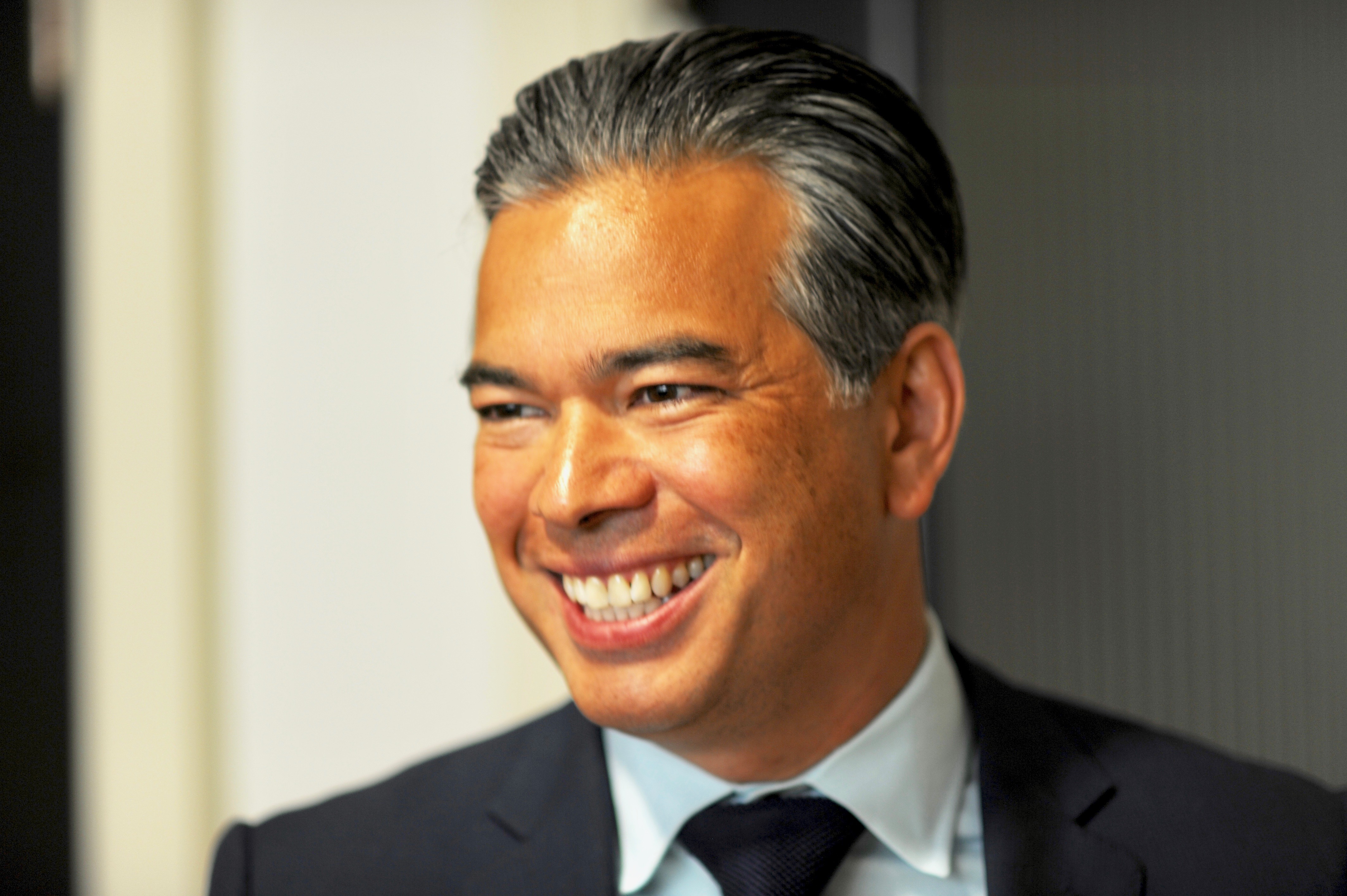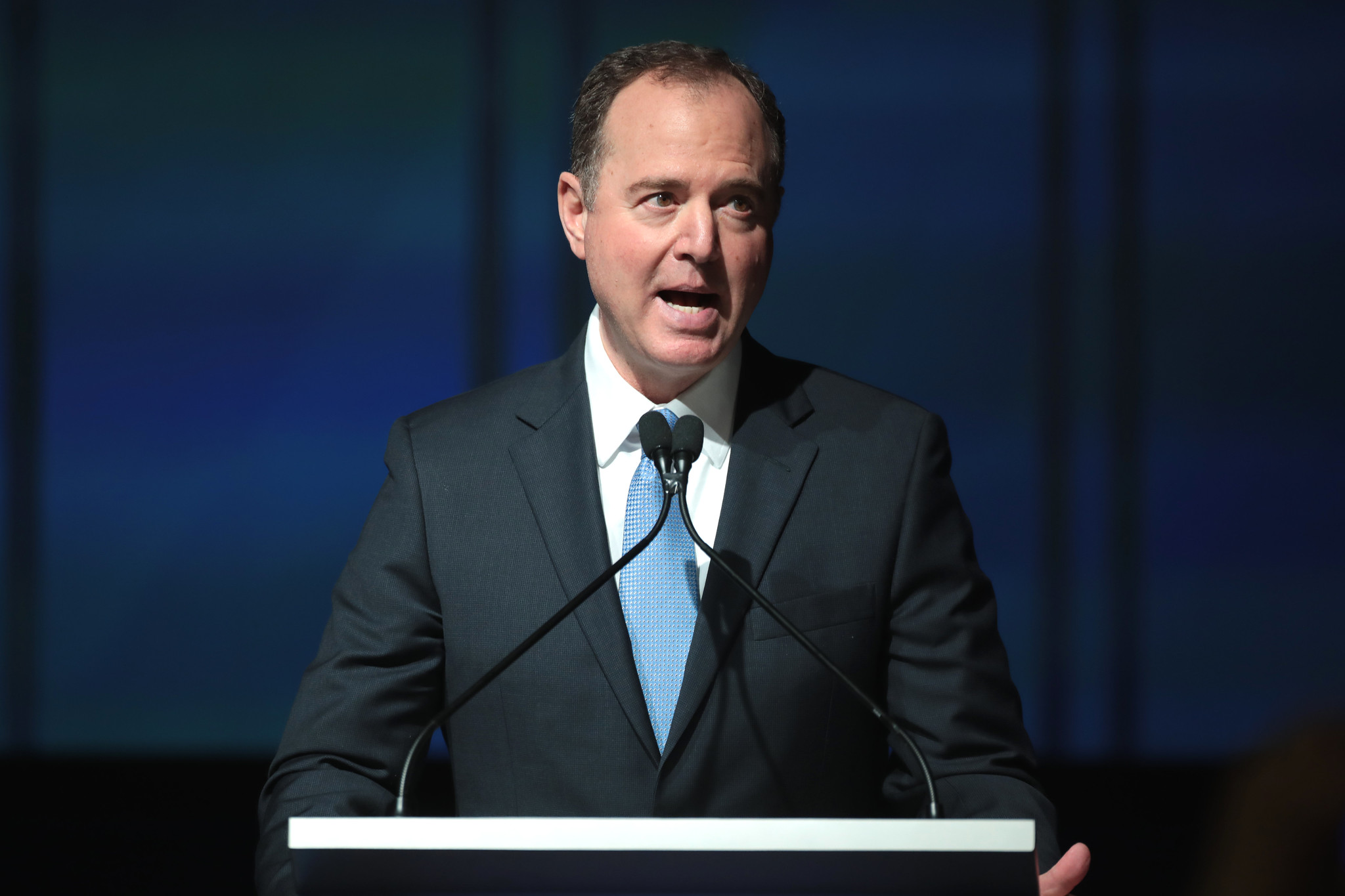
CA Attorney General Rob Bonta. (Photo: Kevin Sanders for California Globe)
What’s With CA Attorney General Rob Bonta’s Crusade Against Financial Institution Fees?
None of the strictures violate any California laws Bonta is charged with enforcing
By Evan Gahr, April 15, 2022 4:29 pm
California Attorney General Rob Bonta has lately devoted lots of time and energy taking aim at the fees financial institutions charge customers.
But it’s unclear what the basis is for his crusade against overdraft fees and mortgage service processing fees since none of the strictures violate any California laws he is charged with enforcing. They are just unpopular with progressives and the social justice crowd.
Bonta this week took aim at the fees mortgage service companies charge customers to process payments, joining a multi-state coalition that exhorted the federal Consumer Financial Protection Bureau to ban the payments.
“For struggling homeowners trying to make their monthly mortgage payment, ‘pay to pay’ fees only rub salt in the wound,” Bonta said in a statement. “The fact is: We are facing a housing affordability crisis of epic proportions here in California. And as costs of living continue to rise, the last thing Californians need is mortgage servicers taking advantage of this captive market in order to pad their bottom lines. I urge CFPB to put a stop to these abusive junk fees.”
According to Bonta the “pay to pay” fees “are for payments made online, by phone, or through a third-party service, with fee amounts often exceeding the actual cost to the servicer to process the payments. In today’s letter, the coalition argues that these fees are excessive and exploitative because homeowners are unable to choose their servicer and thus are a captive market.
There are no fees if you send your payment by regular mail. So the consumers are essentially being charged a convenience fee.
Bonta sent a letter to Consumer Financial Protection Bureau director Rohit Chopra that was also co-signed by the attorneys general of Illinois, Colorado, Connecticut, Delaware, the District of Columbia, Hawaii, Iowa, Maine, Maryland, Massachusetts, Michigan, Minnesota, Nevada, New Jersey, New Mexico, New York, North Carolina, Oregon, Pennsylvania, Rhode Island, and Washington state.
“While we share the Bureau’s broad concern about the proliferation of junk fees in the consumer financial marketplace,” the letter began,”we are focusing these comments on a specific type of fee that we have found to be unfair and abusive to consumers: convenience fees imposed by mortgage servicers. Some financial service providers charge fees if a consumer decides to use a certain type of payment method, such as making a payment over the telephone, through a website, or through a third party service. While these type of ‘pay to pay’ fees are charged by service providers in several different markets, the issues raised by these fees are particularly insidious in the mortgage industry because, unlike most marketplaces, homeowners have no choice in their mortgage servicer.”
The letter addresses the fact that consumers can simply pay by mail to avoid fees. The AGs contend that is not a viable option.
“Mortgage servicers who charge these fees will no doubt argue that borrowers are able to submit their payment without incurring any fee by using alternative methods, like sending in a check or perhaps by setting up automatic deductions from a bank account. But like refinancing, this purported choice is actually illusory for many borrowers. In most instances, a borrower is choosing to submit a payment by phone or through a website because they want the payment to post immediately; mailing a check would take too long to post to avoid a late fee. And the late fee that a servicer may impose will likely exceed the cost of making a payment by phone or through a website. In this scenario, the convenience fee actually operates as an alternative late fee – perhaps cheaper, but with a shorter grace period, and in contravention to the contractual terms in most mortgages that outline the specific amount and timing of late fees. So, rationally, the consumer chooses the option that costs less and accepts the convenience fee charge. But simply choosing the less bad option doesn’t mean that the consumer really has a choice.”
Bonta and his cohorts then object to the fact that businesses are making a profit off the fees.
“Moreover, we have concerns that the convenience fees charged by these servicers exceed the actual cost to the servicer to accept payments made through a website or over a phone,” they write. “The most basic function of a mortgage servicer is to accept payments. The concept that a servicer ought to be able to impose an additional charge for performing its core function is fundamentally flawed. We don’t deny that servicers incur some costs to set up their business to accept payments – but that’s true of every business in every setting, and accepting payments is the core business of mortgage servicing. Lenders are supposed to earn their profit for servicing the loan in the origination charges and interest rate that consumers pay. In other words, mortgage servicers have already been compensated for the costs of accepting payments submitted by the borrower when these servicers either enter into the original loan or choose to acquire the servicing rights for the loan. Through their convenience fees, mortgage servicers are essentially getting compensated twice for accepting a payment.”
For all these reasons, the letter argued, “we urge the Bureau to consider prohibiting mortgage servicers from imposing convenience fees on consumers. Alternatively, we urge the Bureau to prohibit servicers from charging convenience fees that exceed the actual cost of processing the consumer’s payment and require servicers to fully document the costs supporting the imposition of these fees.
The letter concluded by urging the Consumer Financial Bureau to also investigate overdraft and insufficient fees that banks charge customers who overdraw their accounts. “We urge the Bureau to investigate fees in other captive markets where consumers do not have the ability to take their business elsewhere to avoid the fees, or where fees imposed on consumers are hidden profit centers for companies without an ability by consumers to adequately avoid such fees.”
So that was this week’s endeavor. Last week Bonta and almost all the same attorneys general who signed the letter to the Consumer Financial Protection Bureau sent letters to four of the nation’s largest banks demanding that they eliminate overdraft fees. Just like the letter to the Consumer Financial Protection Bureau the letters to the banks did not cite any laws being broken to make their case.
Announcing the multi-state effort Bonta said that, “Eliminating overdraft fees is an important step toward a more equitable financial system. These junk fees often pile up, forcing consumers already short on cash to pay an additional $20, $30, or $40 for even a minor transaction. For banks, overdraft fees are easy way to pad their profits, but for struggling consumers, these fees can seriously derail their financial plans. It’s long past time for banks to end this predatory practice. I urge JPMorgan, Bank of America, U.S. Bank, and Wells Fargo to act in the best interest of their customers and eliminate overdraft fees by this summer.”
“No one should ever be charged a $35 fee for a $2 dollar carton of eggs,” he argued, meaning that the two dollar purchase if unfunded would lead to a $35 overdraft fee “But under many banks’ current policies, that’s exactly what might happen if a consumer overdraws on their bank account.”
Bonta and his comrades sent identical letters to the heads of JPMorgan, Bank of America, U.S. Bank and Wells Fargo noting that Citi and Capital One have already committed to ending overdraft fees. They urged the other banks to follow suit as a matter of equity and fairness.
“The deleterious effects of overdraft fees and other overdraft-related practices on American consumers and families are well documented,” Bonta and the other attorney generals wrote. “A comprehensive study of overdraft related fees charged in 2019, the last year before the Covid-19 pandemic, found that more than $11 billion in fees were charged, with the overwhelming majority of those fees assessed to the most vulnerable consumers with the lowest average account balances. A similar study noted that more than 90 percent of such fees are paid by a small subset of consumers, who generally paid three or more such fees per year while earning less than $50,000.4 Consumers of color are disproportionately affected by these fees, which frequently result in account closure and leave many affected consumers entirely unbanked.”
Bonta and the other AG letter writers found it very offensive that the banks make profits off the fees. “Troublingly, the cost to the typical bank to cover unfunded transactions is typically far lower than the size of the fee that is charged.”
Saying that “No person should ever be charged a $35 fee for a $5 cup of coffee” the letters concluded by urging each bank “to consider the enormous societal costs of overdraft, overdraft protection and similar fees, and to commit immediately to the elimination of such practices on the same timetable as Citi.”
Bonta’s press office told the California Globe that they have not heard back from any of the banks. JP Morgan declined comment and all the other banks did not reply to emailed inquiries.
- BREAKING: Brandeis Center Files First-Ever Antisemitism Lawsuit Against a U.S. State – California - February 27, 2026
- Former Student Government President is Suing UCSB Over Anti-Semitic Abuse and Harassment - February 24, 2026
- Trump Justice Department to Join Lawsuit Against UCLA Medical School for Illegal Racial Preferences in Admissions Decisions - February 16, 2026




So this highly qualified dupe understands that the state of california charges “pay to pay” fees also. Is he going to go after the dmv, dept of insurance or the countless other agencies that have a thrid party vendor that charges to collect fees or is that different cause its the state? And if returned check fees (NSF) are a concern start with public education by teaching children how to balance a check book rather than CRT, etc…
Ya see, when the DMV does it for payment of registrations and such, well, that’s, uh…that’s ummm….different. Yeah, that’s the ticket, it’s different.
Perhaps if the state reduced the taxes coerced from the citizens of California, they would be able to pay their mortgages on time, and avoid writing bad checks.
I haven’t checked but I would guess that Mr. Bonta is up for re-election. It would seem thoughtful of him to be looking out for the voters finances but the fact that crime is running rampant in the state while he chases banks not breaking the law puts him in the drivers seat of the clown car going over the cliff. Good for him!
He probably wants more campaign contributions for himself and other Dems from financial institutions.
Demonrats always need a “war”. If it is not one thing it is another. Unless an industry pays them off the war continues. I would expect big campaign contributions from financial companies in his future. Can you say “shakedown”? 😉